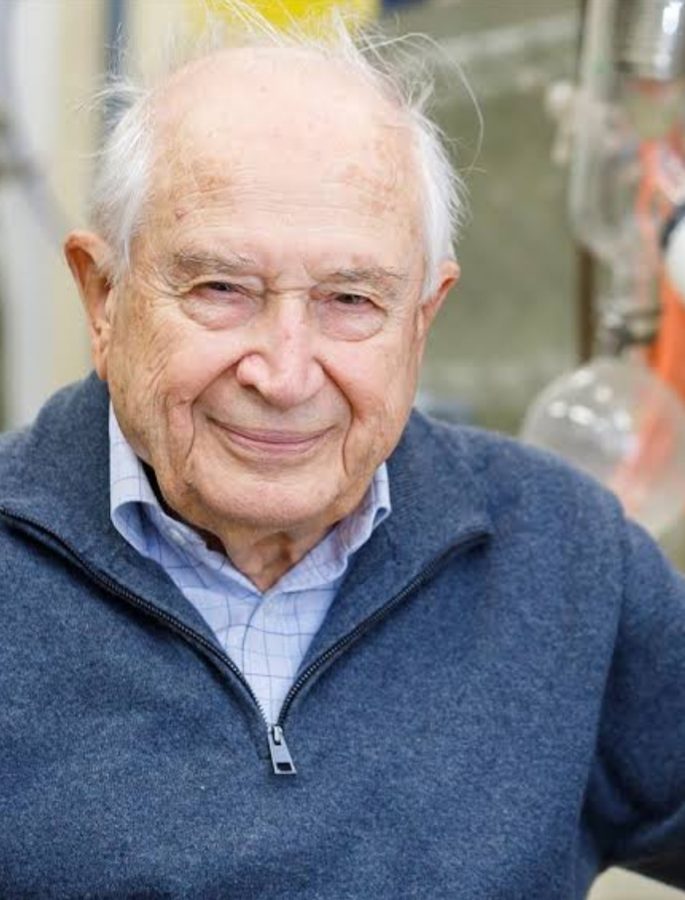“The father of cannabis research” talks industry developments, challenges and the future
At the grand old age of 90, Raphael Mechoulam is still making waves in the cannabis industry.
Author of CBD: What Does the Science Say? and winner of the Harvey Prize in Human Health, “the father of medical cannabis research” how to download one of the most influential figures in the cannabis industry as a whole.
The Israeli organic chemist and professor of Medicinal Chemistry at the Hebrew University of Jerusalem gained worldwide fame in 1964, when he and a team of researchers successfully isolated and identified numerous plant cannabinoids, including ∆9-tetrahydrocannabinol (THC).
Mechoulam joins scientific journal’s board
One of the scientist’s latest endeavors involved joining the Journal of Cannabis Research’s board. During a recent interview with the scientific resource’s Editor-in-Chief, David Gorelick, Mechoulam opened up about the early days of his career and the things that excite him about the progressive cannabis industry.
When asked how it all began, Mechoulam responded as follows:
“It all started from a fateful bus ride in 1964, when I brought 5 kilograms of Lebanese hashish I received from the Israeli Police to my laboratory at the Weizmann Institute in Rehovot. With that material we were able to isolate and identify the psychoactive component in Cannabis, Tetrahydrocannabinol (THC), that had eluded scientists for decades. The rest, shall we say, is history.”
Gorelick proceeded to ask Mechoulam about the specific industry developments he considers to be the most exhilarating at the current time. He answered by saying that he thinks scientists should be paying more attention to the acidic precursors of THC and CBD – THCa and CBDa.
“Those molecules have low stability, and as a result, very little research has been done on them,” said Mechoulam, who noted that he thinks the molecules should be studied more.
Mechoulam is concerned about cannabis research restrictio5ns
As the conversation continued, Gorelick questioned Mechoulam on potential challenges for the future of cannabis research. Understandably, the Israeli scientist responded by emphasizing the fact that “there is a lack of clinical research.”
Most notably, he said, federal cannabis cannabis laws are severely restricting research efforts. Despite the fact that a growing body of evidence is accumulating, Mechoulam made a point of noting that the existing evidence is currently insufficient to fully integrate the green plant into the global field of medicine.
“So many cancer patients around the world have used cannabis for years, but still there are almost no randomized-controlled clinical trials with cancer patients. Every medication goes through clinical trials. And clinical trials cost money, usually quite a lot,” he explained.
Furthermore, Mechoulam feels slightly perturbed at the thought of funding for cannabis-focused research.
“Clinical trials are usually funded by pharmaceutical companies, but it seems that those companies are not interested in investing in cannabis. Since it cannot be patented, they would probably not get a return on their money. Hopefully, governments should be interested in this kind of data, but we know that governments, in general, don’t have the capacity needed to do such research.”
Mechoulam on cannabis research: Looking to the future
The conversation wrapped up with Gorelick asking where he thinks the field is headed in the future. Mechoulam swiftly responded by talking about the endocannabinoid-like compounds that are produced by the human body.
“In addition to the known endocannabinoids (Anandamide, 2-AG, etc.) the body also produces a large number of endocannabinoid-like compounds. The body does not generate compounds for no reason. These endocannabinoid-like compounds must serve some endogenous role,” expressed Mechoulam, who stated that he believes these compounds could potentially strengthen the immune system.
Specifically, McCullum spoke about the possibility of these compounds influencing human behavior and helping to amplify the body’s defense against disease. He described this as a “molecular basis for our personality.”
“It is hard to believe that the human body does not possess some alternate mechanisms for dealing with diseases where the immune system’s antibody vs. antigen method is not relevant,” said Mechoulam, who finished up the discussion by saying, “these endocannabinoid-like compounds may be part of a broader heretofore unknown aspect of the immune system, protecting against diseases in ways we may only uncover in the next 20 years.”








